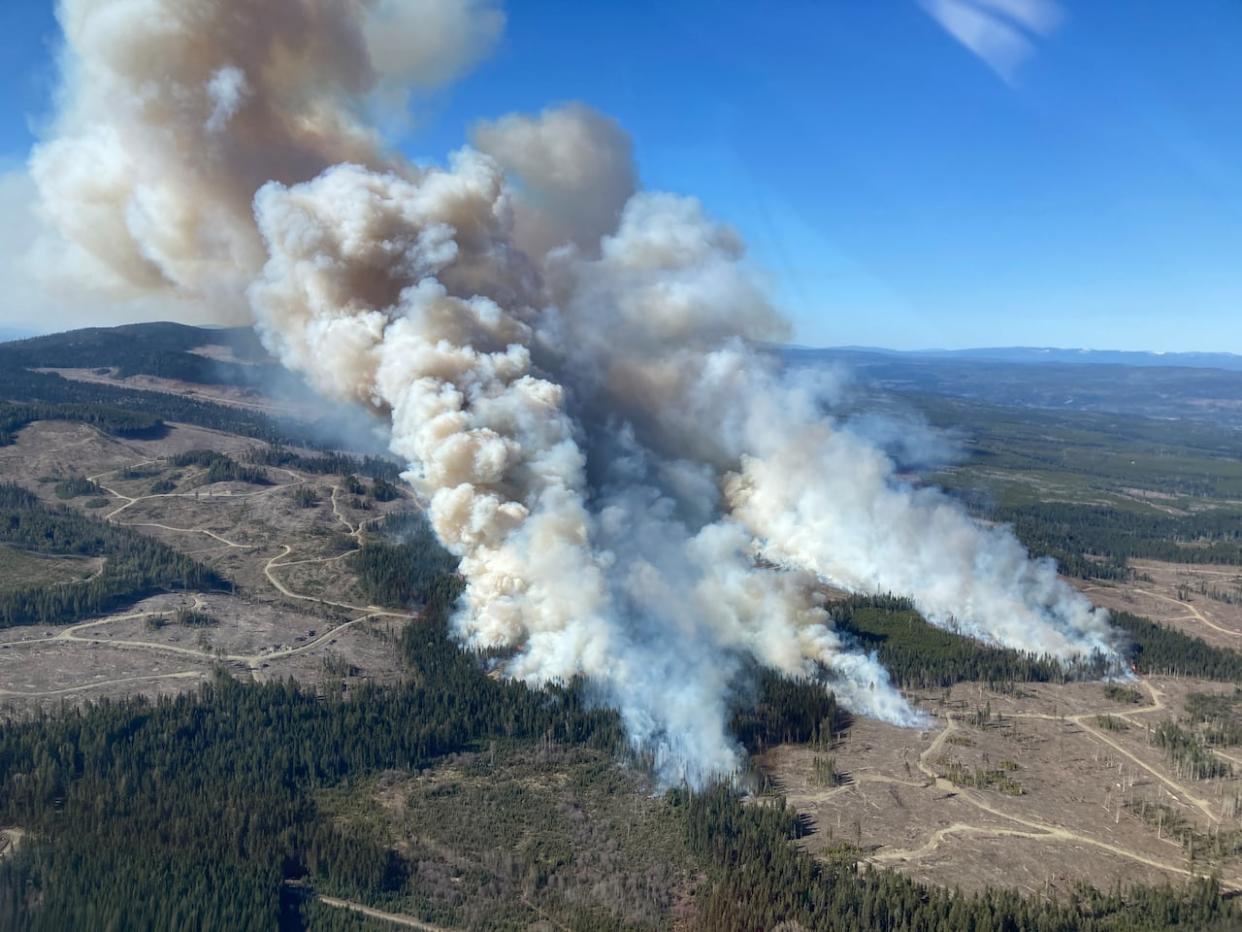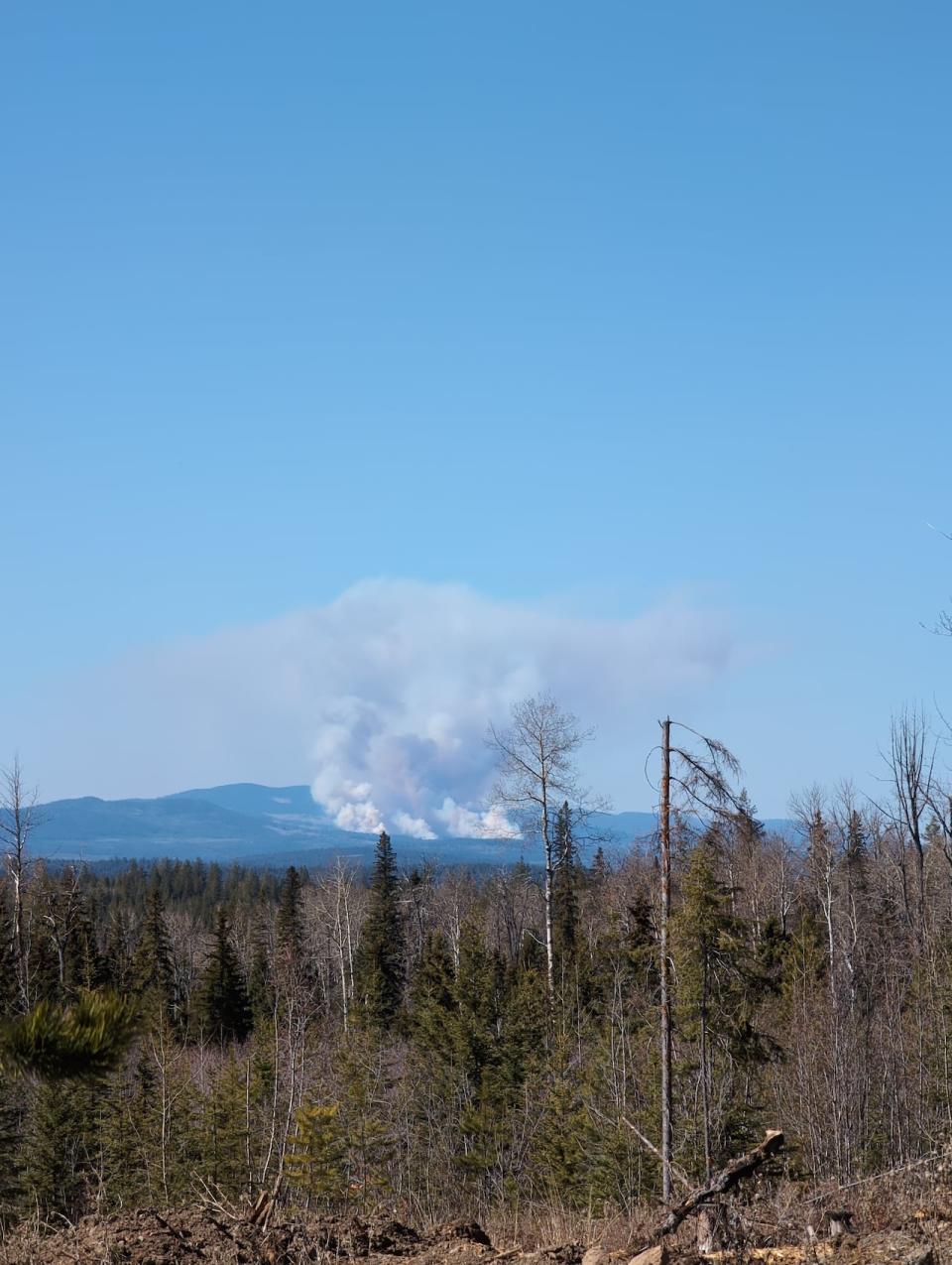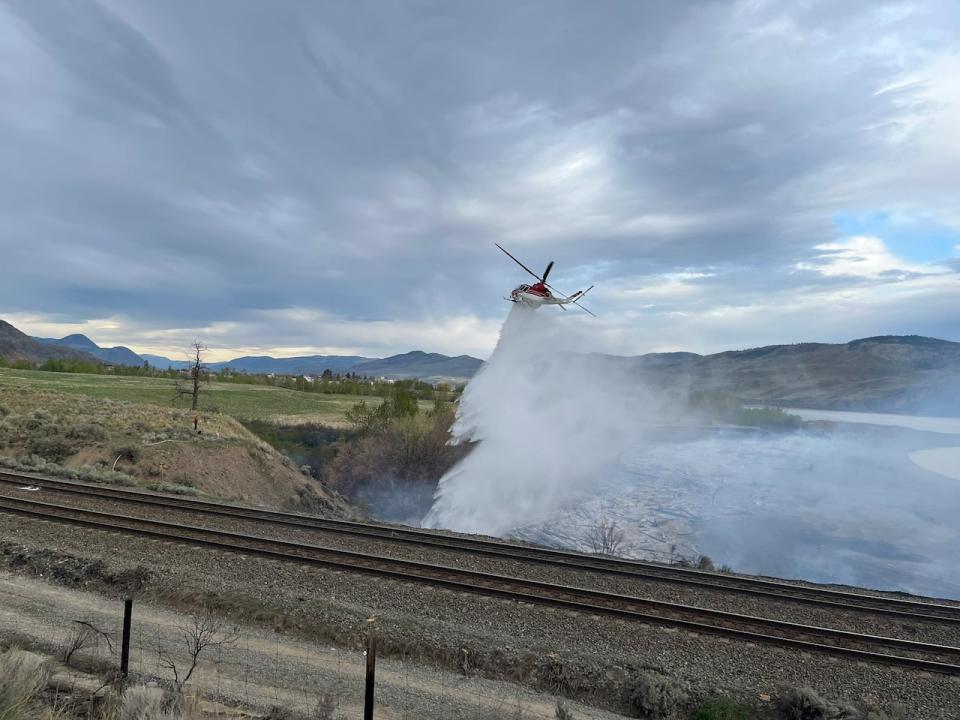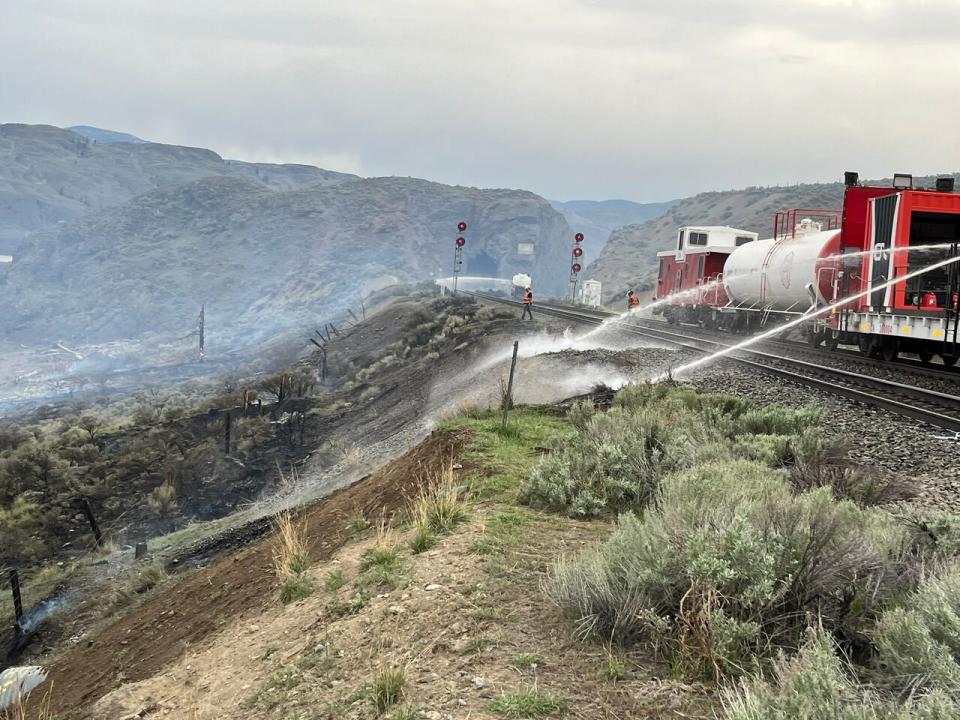7 human-caused wildfires reported in central B.C. in 1 afternoon

Wildfire crews are battling an out-of-control wildfire in central British Columbia — one of seven human-caused blazes reported in the Cariboo region on Saturday afternoon.
The Burgess Creek fire has ballooned overnight, growing from 0.5 square kilometres to 16 square kilometres in size on Sunday. It is burning about 50 kilometres south of Quesnel, a city about 415 kilometres northeast of Vancouver.
The fire is sending a thick plume of smoke into the air that is visible from Quesnel, Williams Lake and Highway 97, according to B.C. Wildfire Service (BCWS) information officer Madison Dahl.
However, Dahl said Sunday afternoon that no homes or buildings are threatened at this time, and said that firefighters were able to more accurately map the size of the wildfire on Sunday morning.
"Due to the incredibly dry conditions and the strong winds we had [Saturday], we did see an an increase in the size of that wildfire this morning," she told CBC News.
Dahl said there were around 40 personnel working to contain the blaze on Sunday, and helicopters and planes were also on site.

The Burgess Creek wildfire is not threatening any structures, according to Dahl. (B.C. Wildfire Service)
"We are expecting to see winds again today," Dahl said. "Hopefully, not as strong as yesterday, but they will be pushing that smoke to the north."
Category 2 and 3 fire bans remain in place across the fire centre, which means large open fires, including pile burns, are not allowed, according to Dahl.
The other six fires reported in the Cariboo fire centre on Saturday are all either out, under control or being held, according to BCWS. The human activities suspected of causing the fires are unknown and will be investigated, Dahl added.
"That's in large part thanks to the efforts of volunteer fire departments both in Quesnel and Williams Lake," said Dahl.
"It's only because of the sharing of resources and the quick response and assistance from those fire departments that we were able to properly respond to all of the wildfires."
But Dahl said it is still "a lot of wildfires to respond to" in one day, let alone so early in the spring.
Other fires reported in Interior
Crews are also battling out-of-control wildfires started in other parts of B.C.'s Interior this weekend, signalling an early start to what wildfire and election officials have warned could be another "very challenging" wildfire season ahead.
Two wildfires were reported in the Prince George fire region on Saturday, and both of them are currently classified as out of control.
BCWS and Kamloops fire crews responded to an out of control grass fire near Cooney Bay, about 15 kilometres west of downtown Kamloops on the north bank of the Thompson River, on Saturday.

A B.C. Wildfire Service helicopter is seen at the scene of a grass fire in Kamloops, B.C., on Saturday, April 20, 2024. (Ken Uzeloc/Twitter)
Kamloops Fire Chief Ken Uzeloc told CBC News that they first responded to the fire around 12:30 a.m. PT on Saturday, but had to request support from BCWS that afternoon as the fire began to spread.
"We requested some air support, and fortunately, B.C. Wildfire [Service] managed to get us a couple of helicopters to come and assist," he said. "Also, we had support from CN Railway who brought a tanker truck and their firefighting train."

A firefighting train from CN Railway is pictured at the scene of a grass fire near Kamloops, B.C., on Saturday, April 20, 2024. (Ken Uzeloc/Twitter)
Uzeloc says the fire is suspected to have been caused by human activity, and reminded residents of the province's ongoing drought and a ban on campfires and outdoor burning within city limits.
"You cannot be playing around with fire or campfires and think that, 'oh, I'll just keep this contained,'" the fire chief said. "We really need people to be vigilant."
About 20 kilometres north of Lytton, the out-of-control Skoonka Creek wildfire is burning over an area of 0.5 square kilometres, according to fire information officer Shae Stearns.
Stearns told CBC News Sunday that BCWS is taking a modified response to the fire because there is no immediate risk to life or property.
"The fire is blowing at a lower intensity, working its way through that drier fuel, while still having some of that snow in the area, which keeps that intensity down," she said.
Stearns added that fire can often be beneficial to the natural landscape, and that is another reason why the wildfire service could take a modified approach in containing the blaze north of Lytton.
In the province's southeast corner, a small fire was discovered on Saturday as well and is burning out of control about 20 kilometres north of Grand Forks, according to the BCWS website. It is also suspected to be human-caused, according to the service.
Dahl urged people out enjoying nature to be careful and to report smoke and other signs of fire to BCWS immediately.
"Every time we have to respond to a human-caused wildfire, especially after a lightning burst, that depletes the resources that we have to respond to those natural fires," she said of the Cariboo wildfires.
"These are all preventable fires."


